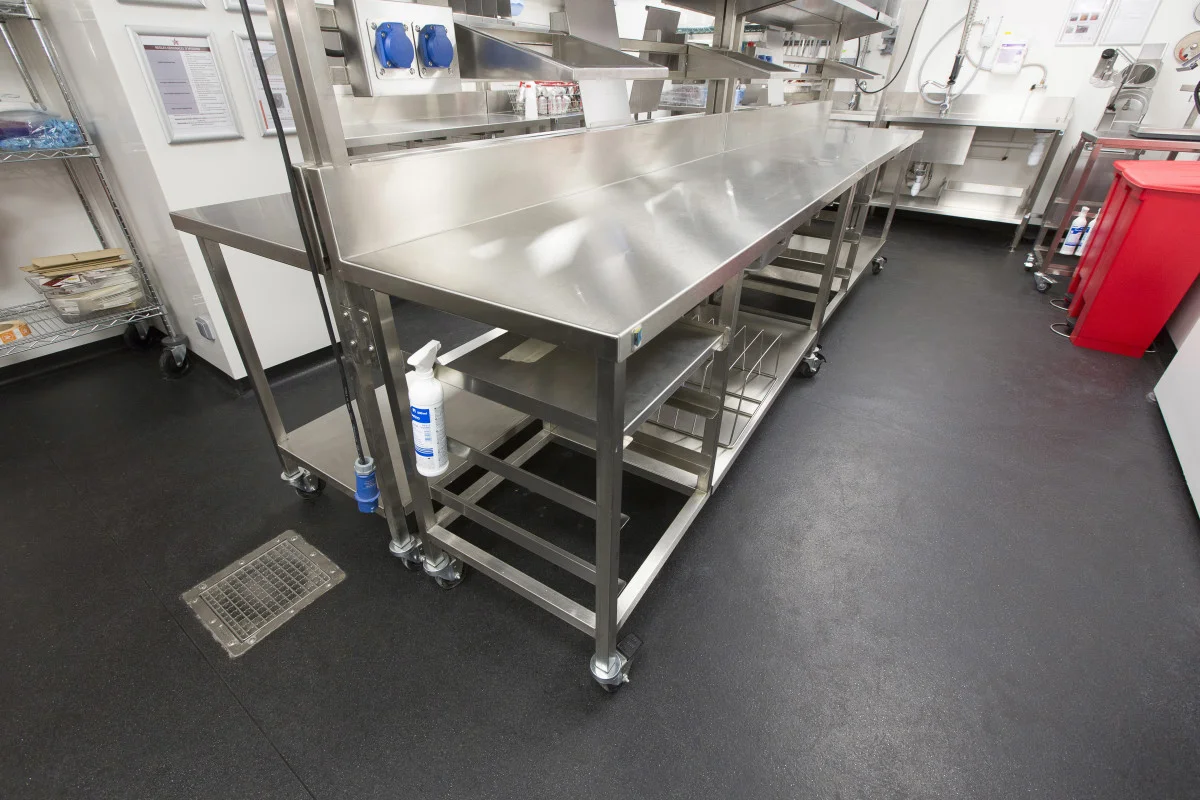Staying on Your Feet: How to Choose Commercial Kitchen Flooring
A good commercial kitchen needs solid foundations, so where better to start than the flooring. Design Consultant Nicola Pedrette of Target Catering Equipment, reveals the four key rules to getting it right underfoot.
Of all the areas of your commercial kitchen, flooring is one of the most important. Any food or drink that gets spilled onto it can turn into a death trap for your staff. Spillages can lead to people slipping over, and if they're not cleaned up straight away they can become a breeding ground for bacteria. Dirt and bacteria already make their way into your kitchen via the shoes on the feet of your staff, so it's important to do everything you can to minimise the risks. When it comes to purchasing flooring for your kitchens there are several things you should take into account...
1. Slip resistance - Commercial ktichens get busy and chaotic at peak service times, with lots of staff trying to move around all at once. All of that hustle and bustle, accompanied by food, grease and water on the kitchen floor, can lead to it becoming a serious slip and trip hazard. Slip-resistant flooring is absolutely essential in any professional kitchen in order to minimise and control the risk of your staff slipping and injuring themselves.
2. Practicality - Safety and practicality should be at the forefront when you're thinking about what flooring to purchase. For example, a tiled floor can easily chip and crack with the constant heavy use associated with a commercial kitchen. This then opens up more nooks and crannies in which bacteria can hide and grow. Flooring that is durable, not prone to cracking and ideally in one piece without seams is ideal for you kitchen.
3. Maintenance - Easy-to-clean flooring is ideal in a catering kitchen setting as spillages need to be dealt with as quickly as possible so as not to disrupt service too much. Slip-resistant epoxy or vinyl flooring is easy to clean and doesn't provide cracks for food and other debris to get caught in. This means that from a maintenance point of view, it can be swept and mopped much more easily.
4. Durability - Changing the flooring in your industrial kitchen every two to three years is a real hassle so it's important to look for flooring that offers excellent durability and will stay the course. A slip-resistant, easy-to-clean, durable floor might appear to cost more in terms of initial outlay but it will save your organisation money, time and hassle in the long run.

